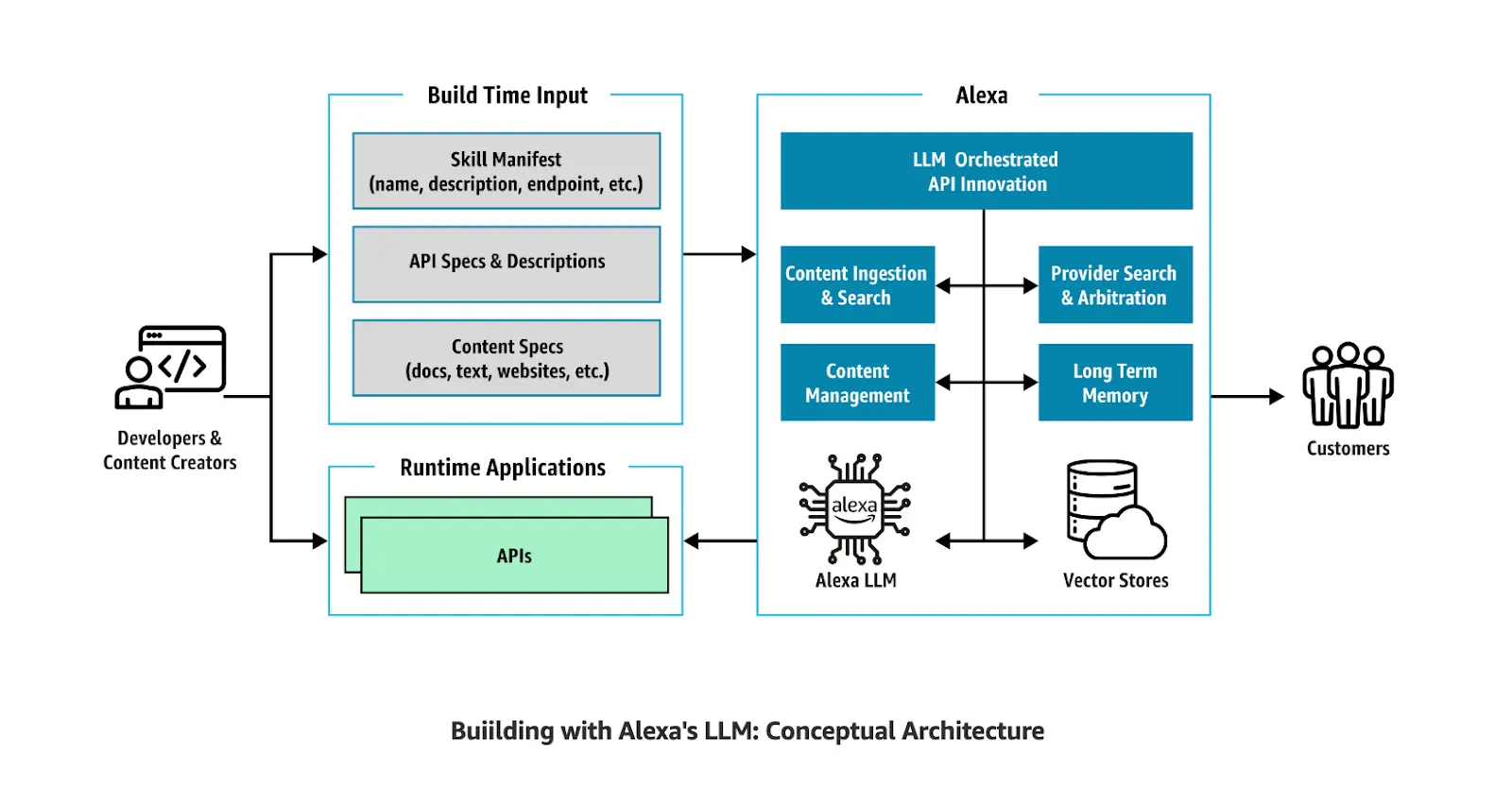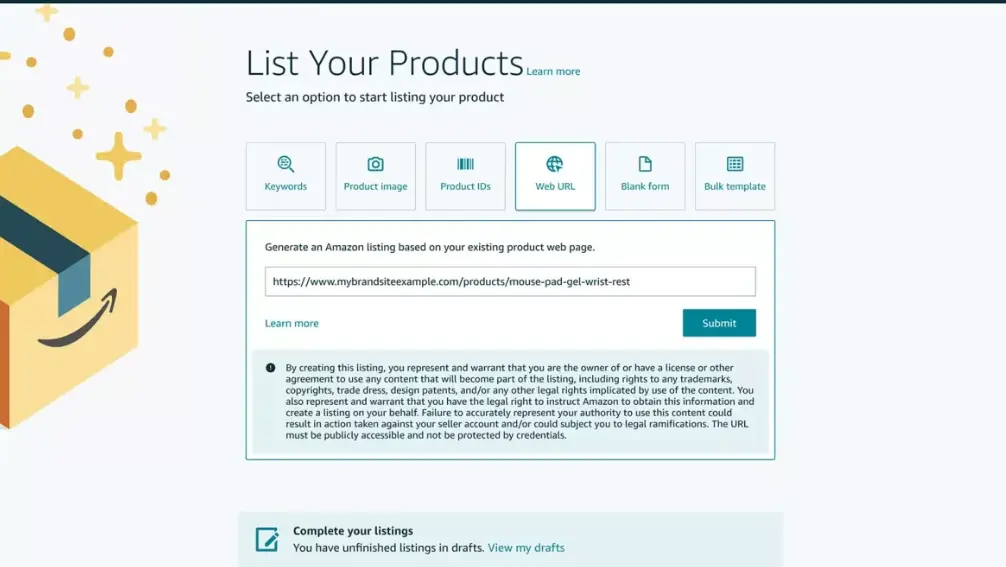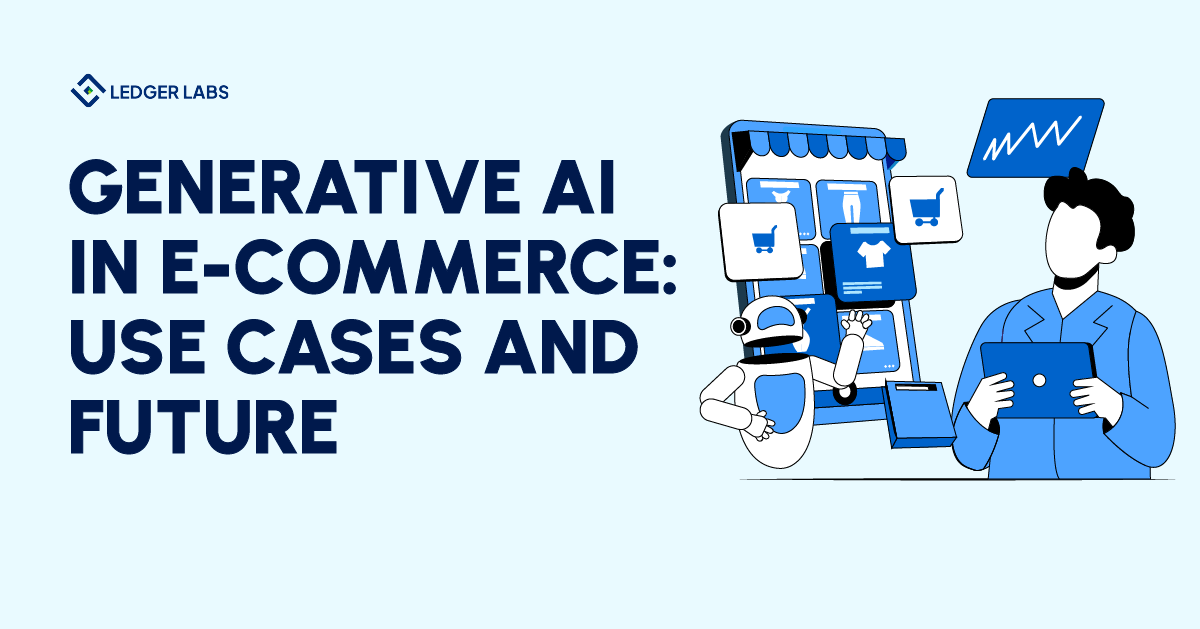The e-commerce landscape has evolved over the last few years. By 2023 its global market had reached 2.14 billion already.
While many credit it to convenience, a huge credit has to go to generative AI.
Generative AI has changed how customers shop online, giving them the best of in-store and online shopping.
This technology goes beyond machine learning, making your shopping experience more personalized.
Today, many e-commerce marketplaces implement AI to improve customer experience and boost sales. Amazon is one of the best examples of this.
Let’s explore the use of generative AI in e-commerce.
- Generative AI helps businesses create personalized and valuable content.
- 51% of businesses use Generative AI to provide customers with personalized product recommendations.
- Generative AI is used to create customized product descriptions, provide visual styling assistance, and offer competitive prices.
- Amazon, Stitch Fix, and Alibaba are popular e-commerce platforms that use generative AI.
Understanding generative AI in the e-commerce landscape
NetSuite connectors are advanced Netsuite integration tools that bridge the communication gap between different software applications, allowing a seamless flow of information for data consistency and operational efficiency.
NetSuite is a cloud-based ERP solution that easily integrates with other systems, like e-commerce platforms and CRM software to automate data synchronization, eliminating the need for manual data entry.
For example, you can integrate NetSuite with Shopify, a popular e-commerce platform.
How this works: when a customer places an order on your Shopify, this connector will automatically transfer the order details into your centralized database, NetSuite. This information includes product details, shipment address, customer information, etc.
It helps save time and reduce chances of human error as there’s no need to transfer data manually. The record is consistent across channels, speeding up order fulfillment processes without unnecessary delays or discrepancies.
4 ways to use generative AI in your e-commerce business
One way to ensure a sale online is to package a product in a way that appeals to the customer.
E-commerce companies use generative AI to improve customer satisfaction. And to do that, they work towards improving their experience.
1. Create customized product designs
Have you ever ordered a customized product from an online store only to feel disappointed when it got delivered?
A lot of businesses struggle with that. You can counter this problem by using generative AI.
Through Gen AI, businesses can offer their customers the option to design the product themselves.
This way, customers can choose from different colors and materials. It will allow customers to design products the way they want.
2. Automate product descriptions
The culture of content writing has changed a lot since AI entered the chat.
Businesses now rely on this advanced technology to create product descriptions, saving time and money.
GEN AI helps businesses create product descriptions from its specifications, reviews, and even popular keywords
You could be selling leather jackets online and use GEN AI to create descriptions of every item from your collection, explaining its design, material, and size.
3. Offer virtual styling assistance
Customers often look at products online and wonder how they’ll look on them. E-commerce businesses have found a solution with GEN AI.
AI creates virtual try-on experiences and offers a rotating option to give customers a 360 view for better judgment.
You now have a virtual styling assistant that can guide customers on what would look good on them based on their fashion preferences, purchasing and browsing history, and the latest trends.
4. Offer competitive prices
The digital world has made shopping convenient for customers. It gives them options, so they choose the most competitive price.
Businesses now use AI tools to monitor the average product prices across platforms. You may have experienced a customer’s disinterest whenever they found the product at a lower price.
AI helps businesses reanalyze their pricing strategy and make it more competitive. It evaluates data across channels to identify trends and future demand. You can use this information to adjust your prices accordingly.
You can also tailor those prices according to the customer’s browsing history, demographics, and even the time of the day.
How do e-commerce platforms use generative AI?
1. Amazon uses LLM to make conversation with Alexa more meaningful

Amazon has made several changes to Alexa, making the smart device more conversational and understanding. Today, Alexa is based on a new large language model (LLM) customized and built to improve voice interactions.
Amazon realizes the importance of a good conversation and the core ingredients that make a conversation valuable. It’s an amalgamation of various things, like your body language, knowledge, and how much eye contact you make.
That’s why it has added sensors in its Echo.
Alexa can now identify non-verbal cues. It has focused on improving the tone and flow of its conversation style. For example, Alexa will now take pauses at the right time instead of speaking in a monotone voice.
In addition, Alexa now has context to these conversations, just the way humans do. We have follow-up questions, in-depth intellectual conversations, and a personality. With this new LLM, Alexa now has a strong point of view, making conversations more valuable.
2. Amazon uses AI to improve product listing

Amazon sellers often struggle with writing engaging product descriptions, attractive product titles, and product specifications in bullet points.
It uses large language models (LLMs) a generative AI to simplify the process.
LLMs are machine learning models trained to recognize, translate, predict, and create content. It’s coded with large amounts of data, making product listings simple and less of a hassle.
If you’re selling a product on Amazon, you will only provide a brief description and let Amazon handle the rest. This new technology will create strategic content that appeals to customers and targets their needs.
3. Stitch Fix uses Gen AI to recommend outfits
Stitch Fix is a platform that helps customers find clothes that match their unique style. They use generative AI to see what customers usually like wearing.
They also consider their size and purchasing history.
Stitch Fix uses content-based and collaborative filtering to provide personalized product descriptions. They take reviews from users and ask them to give ratings.
In addition, they have 125 data scientists working together to analyze user information, like their demographics and browsing history, and reset algorithms accordingly.
4. Amazon Ad Console creates more effective marketing campaigns
Amazon Ad Console is an image generation tool that helps brands generate lifestyle imagery that attracts more customers.
Imagine how bland an image of a toaster would look with a plain, blank background. Now think of the same toaster in a lifestyle context. It would make a huge difference.
Amazon Ad Console is designed to help businesses advertise their products more effectively. This GEN AI increases CTR by 40%.
It is accessible to both small and large businesses. Whether you’re struggling with the lack of in-house resources or you’re low on budget, use Ad Console to strengthen your branding.
And no, it doesn’t require additional technical expertise as it is fairly easy to use. You just have to upload your standard picture and choose a background to make it more attractive.
5. Amazon uses Gen AI to provide customers with review highlights
Amazon is intentional in its approach to providing its customers with authentic and reliable reviews.
One way is by easing the process of leaving reviews. It asks customers for their feedback actively.
It makes reviews from customers in one country available to customers residing in other parts of the world.
For example, customers are usually hesitant whenever shopping for apparel. This process is made simpler as Amazon now makes reviews more relevant.
It’s not like this customer would have to scroll down and find reviews most relevant to them, reviews based on their size and age. Amazon uses generative AI to create highlight reviews based on the customer profile.
It continuously strives to help customers feel confident about their purchases. In 2023, roughly 125 million customers left reviews on their purchases. This means there are 45 reviews every second.
It goes on to prove how enthusiastic the Amazon community is and how seriously they take the reviews.
6. eBay creates personalized shopping experiences using ShopBot
Customer experience plays an important role in customer satisfaction and return rate. eBay understands that well and uses generative AI tools to provide a personalized experience to its customers.
It uses customer data, such as their order history, purchasing patterns, and general browsing behavior to understand individual preferences.
Then it shares these insights with ShopBot. This AI-powered chatbot provides assistance based on the customer data it receives, giving immediate responses, and adding relevance to their shopping experience.
For example, ShopBot offers personalized recommendations based on customer insights. It uses upselling and cross-selling techniques to increase sales. A customer searching for a ball gown is also suggested heels that would complete the look.
The bottom line
E-commerce businesses leverage Generative AI to optimize algorithms and provide tailored product recommendations, enhancing customer experience and conversations.
It is time for businesses to adapt to this new-age technology and improve and automate creative processes. By using AI you give your business growth and value to customers.
Retail businesses predict the value of artificial intelligence to be USD 36,462.5 million by 2030, reassuring that generative AI is the future of e-commerce.
Ledger Labs has 12+ years of experience helping businesses across industries and sizes with bookkeeping and accounting solutions. We automate processes using the latest technology.
Book an appointment with us for consultation on implementing AI in your e-commerce business.












